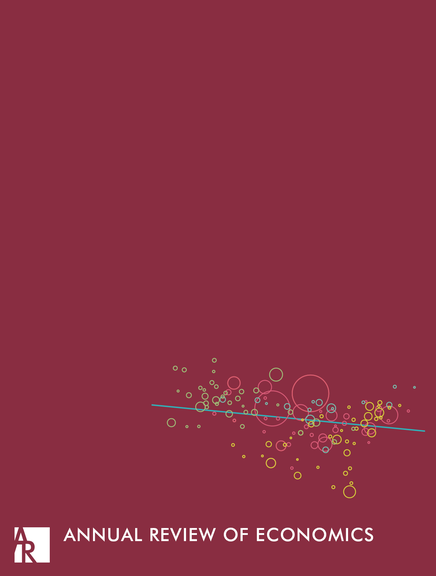边境碳调整的经济学:边境碳补偿的理论基础与影响
IF 11.4
2区 经济学
Q1 ECONOMICS
引用次数: 9
摘要
国际贸易直接导致全球温室气体排放,因为高排放产品的碳含量在不同国家的定价不同。这种现象被称为碳泄漏。因此,不为碳定价理论上相当于出口补贴,尽管在多边贸易法的背景下很难对此提出质疑。通过边境碳调整(BCA)对进口产品中的碳进行定价,无论是税收、碳关税还是要求购买排放配额的法规,都可以缓解泄漏。BCA的设计是在防止泄漏的环境有效性、保持竞争力和确保可接受性的经济有效性、实施的技术可行性和与世界贸易组织的兼容性之间的折衷。进口受限的BCA在减少泄漏方面比免费排放配额更有效,但它并不能保持实施该法案的国家的出口竞争力。《经济学年度评论》第15卷预计最终在线出版日期为2023年8月。请参阅http://www.annualreviews.org/page/journal/pubdates用于修订估算。本文章由计算机程序翻译,如有差异,请以英文原文为准。
The Economics of Border Carbon Adjustment: Rationale and Impacts of Compensating for Carbon at the Border
International trade contributes directly to global greenhouse gas emissions, as the carbon content of high-emission products is priced differently in different countries. This phenomenon is termed carbon leakage. Thus, not putting a price on carbon is theoretically equivalent to an export subsidy, although that would be difficult to challenge in the context of multilateral trade law. Leakage can be alleviated by pricing the carbon embedded in imported products through a border carbon adjustment (BCA), be it a tax, a carbon tariff, or a regulation requiring the purchase of emissions allowances. The design of a BCA is a compromise between environmental effectiveness in preventing leakage, economic effectiveness in preserving competitiveness and ensuring acceptability, technical feasibility of the implementation, and World Trade Organization compatibility. An import-limited BCA is more effective than free emissions allowances in reducing leakage, but it does not preserve the export competitiveness of the country imposing it. Expected final online publication date for the Annual Review of Economics, Volume 15 is August 2023. Please see http://www.annualreviews.org/page/journal/pubdates for revised estimates.
求助全文
通过发布文献求助,成功后即可免费获取论文全文。
去求助
来源期刊

Annual Review of Economics
ECONOMICS-
CiteScore
9.70
自引率
3.60%
发文量
34
期刊介绍:
The Annual Review of Economics covers significant developments in the field of economics, including macroeconomics and money; microeconomics, including economic psychology; international economics; public finance; health economics; education; economic growth and technological change; economic development; social economics, including culture, institutions, social interaction, and networks; game theory, political economy, and social choice; and more.
 求助内容:
求助内容: 应助结果提醒方式:
应助结果提醒方式:


